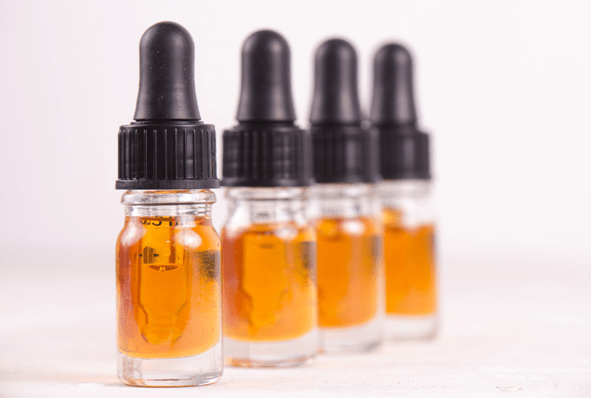Ever since Dr. Raphael Mechoulam discovered the human endocannabinoid system in 1992, scientists and researchers have studied cannabidiol and its effects on cancer cells1. The results are amazing.
Scientific studies illustrate that cannabinoids have the potential to inhibit cancer cell growth. “Experiments carried out on cell lines in vitro and on animal models in vivo have shown that phytocannabinoids, endocannabinoids, synthetic cannabinoids, and their analogues can lead to inhibition of the growth of many tumor types, exerting a cytostatic and cytotoxic neoplastic effect on the cells, thereby negatively influencing neoangiogenesis and the ability of cancer cells to metastasize.”2
The main molecular mechanism that leads to this inhibition by cannabinoids was apoptosis, the progression of programmed cell death. Being able to modulate a cell’s death cycle has enormous therapeutic benefits. CBD has become the cannabinoid of choice for treating diseases like cancer since it does not cause psychoactive effects like THC does.
Highly Aggressive Breast Cancers
Dr. Sean McAllister of the Pacific Medical Center in San Francisco studied cannabinoid compounds for tenyears on a quest to create more therapeutic interventions for a variety of cancers. With help from National Institute of Health (NIH) grants, he found that CBD inhibits cancer cell tumor growth, proliferation, and metastasis.
His study indicated that cannabidiol inhibited aggressive breast cancer cell growth and prevented their invasiveness and metastasisby downregulating the expression of the Id-1 gene3. Id-1 is a helix-loop-helix protein which negatively regulated basic helix-loop-helix transcription factors, and plays a key function in controlling cellular processes related to tumor progression. The Id-1 gene is active during embryonic development, then turning off for good. In certain types of cancers, it switches back on, giving malignant cells the ability to metastasize.
CBD could be the breakthrough cancer treatment that scientists and researchers have tried to find for decades. It offers hope of non-toxic therapeutic benefits that could help treat some forms of aggressive cancer without the debilitating side effects of other treatments like chemotherapy and radiation.Additionally, Dr. McAllister found that CBD acts synergistically with first-line chemotherapy medicines. CBDenhances their impact on cancer cells while at the same time cutting the toxic dosage needed to achieve maximum effect4.
Scientists around the world are recognizing CBD for its inhibition of cancer cells. While more research is needed, as cannabis becomes legal in more states, it will be easier for researchers to obtain the samples that they need for their studies. We are at the tip of describing the next great cancer antagonist. One that is healthier with less harmful side effects than chemotherapy, radiation, or pharmaceuticals.
References:
- Devane et al. Isolation and structure of a brain constituent that binds to the cannabinoid receptor. Science 1992;258(5090):1946-9.DOI: 10.1126/science.1470919.
- Apoptosis: A Review of Programmed Cell Death. Toxicol Pathol 2007;35(4):495-516. DOI:10.1080/01926230701320337.
- McAllister et al. Cannabidiol as a novel inhibitor of Id-1 gene in aggressive breast cancer cells.Mol Cancer Ther 2007;6(11):2921-7. DOI: 10.1158/1535-7163.MCT-07-0371.
- Ward et al. Cannabidiol inhibits paclitaxel-induced neuropathic pain through 5-HT1A receptors without diminishing nervous system function or chemotherapy efficacy. Br J Pharmacol 2014;171(3):636-645. DOI:10.1111/bph.12439.










